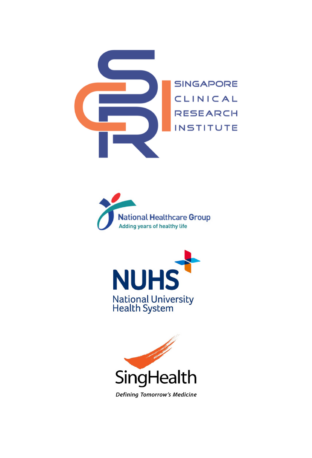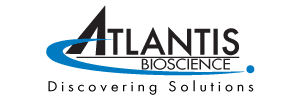- Your cart is empty
- Continue Shopping
Understanding Investigator-Initiated Trials (IIT) and Biopharma-Academic Partnerships for Clinical Trial Success

Understanding Investigator-Initiated Trials (IIT) and Biopharma-Academic Partnerships for Clinical Trial Success
- Atlantis Bioscience
- Blog
- Reading Time: 9 minutes
Clinical trials are the bedrock of medical progress, enabling the development of new treatments and therapies that improve patient outcomes. However, they are notoriously complex, costly, and require extensive resources, meticulous planning, and stringent regulatory compliance. At the heart of this intricate process lies the sponsor, a pivotal entity responsible for the initiation, management, and financing of clinical studies.
Sponsors play a multifaceted role in ensuring trials are conducted ethically, efficiently, and in compliance with global standards. From quality management and regulatory approvals to safety monitoring and data dissemination, their responsibilities are vast and critical.
By fostering collaborations with investigators and academic institutions, sponsors not only drive innovation but also bridge gaps in expertise, funding, and infrastructure. This article explores the vital contributions of sponsors in clinical trials, the unique value of investigator-initiated trials (IITs), and how industry-academic partnerships amplify the impact of clinical research on medical advancements.
The Sponsor’s Critical Responsibilities

The sponsor is the entity or individual accountable for initiating, overseeing, and funding (or securing funding for) the study. Sponsors are responsible for ensuring that clinical trials are conducted efficiently, ethically, and in adherence to regulatory requirements. Their key responsibilities include:
- Regulatory and Ethical Approvals: Securing necessary approvals for clinical study
- Study Conduct and Monitoring: Overseeing the study to ensure adherence to the protocol and compliance with regulations. Sponsors are legally obligated to ensure trials adhere to good clinical practices (GCP) and ethical standards, safeguarding the integrity of the research and the welfare of participants.
- Safety Data Management: Following legal and regulatory requirements for documenting and reporting safety data.
- Data Analysis and Dissemination: Analyzing data, preparing clinical study reports, and publishing results.
- Quality Management: Establishing a robust quality management system across all trial stages.
Sponsors can broadly be classified into two categories:
- Investigator or Institution-Initiated
- These trials are initiated and managed by investigators, often affiliated with hospitals or academic institutions. Funding for IITs may come from various sources, including government grants (e.g., National Medical Research Council [NMRC] Clinical Trial Grant), academic institutions, or partnerships with industry. While in some cases biopharma companies may contribute limited funding, drug supplies, or in-kind support, they typically do not assume full financial responsibility.
- Challenges in IITs:
- Funding gaps can restrict the trial’s scope, requiring investigators to seek additional resources.
- Costs are often shared or borne by the investigator’s institution, including:
- Site-specific costs: Equipment and personnel.
- Data Management: Scaled-down systems compared to industry-led trials
- Monitoring and Quality Assurance: Often limited due to budget constraints
- Administrative Costs: Related to grant reporting and compliance requirements
- Industry Sponsorship
- Industry-led trials are typically sponsored by established pharmaceutical or biotech companies. These studies are larger in scale and are often designed to achieve regulatory approval or facilitate market entry.
- Industry sponsorship provides access to greater funding and resources for key activities, such as pharmacovigilance, extensive patient recruitment, and stringent regulatory compliance. Industry Sponsors bear the financial risk and are accountable for:
- Ensuring trial success and securing regulatory approvals.
- Covering cost overruns or unexpected expenses.
- Managing financial risks associated with trial delays or failures.
- Implementing rigorous financial oversight, often involving third-party auditors to track expenditures and ensure compliance with the trial budget.
Investigator-Initiated Trials (IITS): Opportunities, Challenges, and Impact
IITs play a pivotal role in early-stage research, particularly in generating proof-of-concept data that often serves as the foundation for further studies. Unlike industry-sponsored trials, IITs are frequently designed based on real-world clinical observations, targeting unmet medical needs or exploring treatment avenues with limited financial incentives.
Key Advantages of IITs
- Flexibility: IITs offer adaptability during their course, unlike the rigid frameworks of industry-sponsored studies.
- Relevance: Study designs often mirror real-world patient care, making findings more applicable to clinical practice.
- Independence: Investigators retain control over the study design and objectives, focusing on advancing medical knowledge beyond commercial interests.
Return of Investment (ROI)
For IITs:
- The ROI is primarily non-monetary, centred on advancing scientific understanding, improving patient care, and addressing gaps in current treatments.
- Successful IITs may also pave the way for industry partnerships or licensing agreements, indirectly benefiting investigators and institutions.
- Key Focus: Academic contribution and clinical innovation.
For Biopharma Sponsors:
- Industry sponsors view clinical trials as strategic investments aimed at commercialization.
- ROI is achieved through regulatory approval, market-entry, and eventual sales.
- Trial priorities may shift based on market trends and competitive dynamics.
- Key Focus: Maximizing commercial viability and competitive positioning.
Challenges of IITs
Despite their advantages, IITs face notable challenges:
- Funding Limitations: Restricted budgets can constrain sample sizes, trial duration, or the complexity of study design, potentially impacting statistical robustness and generalizability.
- Regulatory Oversight: Navigating complex regulatory requirements can be resource-intensive.
- Pharmacovigilance and Data Integrity: Maintaining compliance with safety monitoring and data standards is often challenging with limited resources.
To address these challenges, IITs frequently rely on collaborations with industry partners to bridge resource gaps, ensuring trials are executed effectively while maintaining their scientific and clinical value.
The Value of Biopharma-Academic Partnerships

Biopharma-academic partnerships represent a powerful synergy where industry and academia collaborate to advance clinical research and drug development. These collaborations aim to bridge the gaps inherent in IITs and industry-sponsored trials, leveraging the strengths of both sectors to overcome financial, logistical, and knowledge-based limitations.
Access to Investigators’ Expertise
Academic investigators often bring unparalleled knowledge of specific disease areas, honed through years of clinical practice and research. These experts understand nuanced patient needs and are adept at identifying unmet medical challenges that may go unnoticed in industry-driven research.
- Specialized Knowledge: Investigators provide valuable insights into disease biology, patient demographics, and therapeutic approaches, which can shape the development of novel drug targets and therapeutic modalities.
- Real-World Perspectives: Unlike industry studies focused solely on regulatory outcomes, IITs initiated by academic investigators are often rooted in practical clinical observations, addressing real-world challenges and improving patient care.
Improved Patient Access and Recruitment
Investigators often have established relationships with patient communities and possess deep knowledge of local healthcare systems. These connections can significantly enhance patient access and recruitment efforts.
- Diverse Populations: Academic sites often serve diverse patient demographics, enabling trials to generate more representative data for regulatory submissions and real-world applications.
- Faster Recruitment: Academic institutions often have ready access to patient populations and established clinical infrastructures, expediting patient enrollment and trial execution.
The traditional drug development process can span over a decade, delaying the availability of critical therapies for patients. Industry-academic partnerships streamline this timeline by leveraging complementary strengths. IITs often face challenges such as limited funding, insufficient pharmacovigilance, and regulatory compliance hurdles. Industry-academic collaborations effectively address these gaps.
5 Benefits provided by industry-academic collaboration
- Access to Manufacturing Facilities
- Pharmaceutical companies offer access to advanced manufacturing capabilities tailored to meet the specific needs of clinical trials, particularly for complex therapies like biologics, cell therapies, or gene therapies.
- Good Manufacturing Practice (GMP)-Compliant Facilities: Biopharma companies operate in these facilities, which are essential for producing investigational products that meet regulatory standards. These facilities provide a controlled environment for scalable production, ensuring product quality and consistency.
- Specialized Equipment: Sophisticated technologies, such as bioreactors, single-use systems, or cryopreservation equipment, are readily available in biopharma manufacturing setups. These resources enable the production of therapies that require precision handling, such as cell and gene therapies.
- Expert Personnel: Industry-trained specialists oversee manufacturing processes, ensuring adherence to stringent protocols for sterility, potency, and batch consistency. For example, in cell therapy trials, the process requires a combination of T-cell isolation, gene modification, expansion, and cryopreservation—all of which demands a highly specialized manufacturing environment. These capabilities are often beyond the scope of academic institutions but readily available through biopharma partners.
- Pharmaceutical companies offer access to advanced manufacturing capabilities tailored to meet the specific needs of clinical trials, particularly for complex therapies like biologics, cell therapies, or gene therapies.
- Streamlined Logistics Networks
- Beyond manufacturing, pharmaceutical companies possess extensive logistics networks that ensure investigational products are delivered efficiently and securely to trial sites, even under challenging conditions.
- Cold Chain Management: Many therapies, such as biologics and cell-based products, require strict temperature controls during transportation. Biopharma partners leverage advanced cold chain logistics systems to maintain product integrity from the manufacturing facility to the study trial site.
- Global Distribution: With experience in international shipping and regulatory compliance, industry partners facilitate the delivery of investigational products across borders, ensuring timely availability for global trials.
- Inventory Management: Biopharma companies use sophisticated inventory tracking systems to monitor product supply levels, anticipate demand, and avoid shortages that could disrupt trial timelines.
- Emergency Preparedness: In case of unforeseen events, such as supply chain disruptions or product recalls, biopharma partners have contingency plans to mitigate risks and maintain trial continuity.
- Beyond manufacturing, pharmaceutical companies possess extensive logistics networks that ensure investigational products are delivered efficiently and securely to trial sites, even under challenging conditions.
- Compliance with Regulatory Standards
- Industry partners help navigate complex regulatory landscapes and provide critical guidance on trial design, safety reporting, and compliance, ensuring trials adhere to global standards, which accelerates approvals.
- Optimized Clinical Trial Design: Collaboration ensures trials are designed efficiently, meeting both academic goals and regulatory requirements
- Manufacturing and distribution networks operated by biopharma companies adhere to rigorous regulatory standards, ensuring that investigational products meet the quality requirements of health authorities.
- Documentation and Reporting: Industry partners maintain detailed records of manufacturing processes, batch testing, and distribution, providing essential documentation for regulatory submissions.
- Audit-Ready Facilities: GMP-compliant facilities are designed to withstand regulatory inspections, ensuring trials meet global compliance standards.
- Advanced Data Management: Electronic Data Capture (EDC) systems enable accurate, real-time clinical data collection, secure storage, and streamlined reporting.
- Pharmacovigilance Expertise: Industry partners establish robust systems for adverse event tracking, risk management, and safety data reporting to ensure compliance with global safety regulations.
- Industry partners help navigate complex regulatory landscapes and provide critical guidance on trial design, safety reporting, and compliance, ensuring trials adhere to global standards, which accelerates approvals.
- Enhanced Data Generation and Knowledge Sharing
- Biopharma-academic collaborations thrive on the synergy between the industry’s resources and academic institutions’ scientific expertise. These partnerships foster a dynamic environment where shared learning and transparent dialogue contribute to faster data generation, improved decision-making, and overall advancements in medical science and patient care.
- Translational Research: Insights gained from these partnerships often inform translational studies, bridging the gap between basic science and clinical application. By sharing knowledge and data, these collaborations contribute to the establishment of new treatment guidelines and best practices, benefiting patients worldwide.
- Peer-Reviewed Publications: Academic researchers prioritize publishing results in high-impact journals, ensuring that the latest discoveries are accessible to clinicians, researchers, and policymakers. These publications not only validate study outcomes but also provide a foundation for further innovation.
- Scientific Presentations: Findings from these partnerships are often presented at international conferences, facilitating knowledge exchange among global stakeholders and fostering new collaborations.
- Early-Phase Data Generation: Academic sites excel at collecting high-quality data from initial studies, providing critical insights into a therapy’s safety, efficacy, and potential mechanisms of action. This early feedback allows sponsors to refine development strategies and prioritize resources effectively.
- Real-World Data Comparison: Industry partners bring access to vast databases of real-world evidence, enabling comparisons with historical control arms or benchmarking efficacy against competing therapies. These insights can guide go/no-go decisions with a higher degree of confidence.
- Predictive Modeling: Advanced analytics and machine learning tools employed by industry partners can identify trends in early-phase data, predict long-term outcomes and inform trial design for subsequent phases.
- Capacity Building for Complex Trials: For novel modalities like cell and gene therapy, industry partners provide specialized and/or hands-on training on manufacturing, handling, and administration processes, bridging the gap between research and clinical applications.
- Biopharma-academic collaborations thrive on the synergy between the industry’s resources and academic institutions’ scientific expertise. These partnerships foster a dynamic environment where shared learning and transparent dialogue contribute to faster data generation, improved decision-making, and overall advancements in medical science and patient care.
- Pipeline Diversification
- For biopharma companies, partnerships with academia open doors to explore innovative therapeutic avenues that may not align with immediate commercial priorities.
- New Indications: Investigators may propose testing a drug in previously unconsidered indications, expanding its market potential.
- Combination Therapies: IITs often explore drug combinations that address unmet needs, providing industry sponsors with data on synergistic effects.
- Exploration of Early-Stage Ideas: Academic collaborations allow for proof-of-concept studies, which can later be scaled into larger industry-sponsored trials if successful.
- For biopharma companies, partnerships with academia open doors to explore innovative therapeutic avenues that may not align with immediate commercial priorities.
Strengthening Industry-Academic Ties with SCRI

In Singapore, organizations like the Singapore Clinical Research Institute (SCRI) exemplify the crucial role of national academic research entities in fostering these collaborations, enhancing the clinical research landscape, and elevating research standards.
Through partnerships with public healthcare clusters like NHG, SingHealth, and NUHS, SCRI supports IITs conducted in real-world healthcare settings.
SCRI facilitates grant-funded research by championing initiatives like the Local Clinical Trials Grant (LCG) and Clinical Trials Grant (CTG) from the National Medical Research Council (NMRC). These efforts enable researchers to translate innovative ideas into high-quality clinical studies while adhering to international safety and ethical standards.
In addition to its direct support for research, SCRI works with economic and research agencies such as the Economic Development Board (EDB), Enterprise Singapore (ESG), and the Agency for Science, Technology, and Research (A*STAR). These partnerships aim to attract investments, develop talent, and create opportunities within Singapore’s clinical research sector.
SCRI also collaborates with the Biomedical Sciences Industry Partnership Office (BMS IPO): to bridge public-sector research institutions with the biomedical sciences industry, ensuring that innovative research is translated into impactful products and services for patients.
Case Study: Advancing Myeloma Research with SCRI and the Asian Myeloma Network (AMN)
The Asian Myeloma Network (AMN), established by the International Myeloma Foundation in 2011, conducts clinical trials targeting plasma cell cancer in Asian populations. With rising myeloma incidence in Asia, AMN collaborates with countries like Singapore and China to identify effective treatments.
Key Achievements:
- AMN001 Study (2014): Investigated novel drug combinations for relapsed multiple myeloma (MM) patients, supported by Celgene Asia Pacific (Merged to BMS).
- AMN002 & AMN003 Studies (2017): Explored innovative therapies with support from Amgen and Celgene, involving cross-border collaboration with the Australian Leukemia and Lymphoma Group.
- AMN004 & AMN006 Phase II studies: Funded by Janssen Biotech examined daratumumab combinations for relapsed or transplant-ineligible MM patients.
SCRI’s Role:
As the appointed academic research organization since 2017, SCRI provides critical support, including project and data management, safety monitoring, statistical analysis, and research informatics.
Impact:
Through this partnership, AMN has launched five clinical trials across 20+ sites, accelerating the development of therapies tailored to Asian MM patients and highlighting the power of biopharma-academic collaboration.
The synergy between biopharma and academia allows for trials that are scientifically robust, patient-focused, and financially viable. By combining the medical expertise of investigators with the resources and experience of industry players, these partnerships accelerate innovation and ensure trials are robust, efficient, and ethically sound while streamlining timelines, reducing costs, and enabling evidence-driven decisions.
By uniting strengths, these partnerships accelerate the delivery of innovative therapies to patients, addressing unmet medical needs and advancing global healthcare outcomes.
References:
- Guideline for Good Clinical Practice (GCP) E6(R3), Chapter 2. Sponsors
- https://www.scri.edu.sg/academic-research-organization/featured-projects/amn-network-studies/
CONTACT

QUESTIONS IN YOUR MIND?
Connect With Our Technical Specialist.

KNOW WHAT YOU WANT?
Request For A Quotation.
OTHER BLOGS YOU MIGHT LIKE
HOW CAN WE HELP YOU? Our specialists are to help you find the best product for your application. We will be happy to help you find the right product for the job.

TALK TO A SPECIALIST
Contact our Customer Care, Sales & Scientific Assistance

EMAIL US
Consult and asked questions about our products & services

DOCUMENTATION
Documentation of Technical & Safety Data Sheet, Guides and more...

 简体中文
简体中文 繁體中文
繁體中文 English
English 한국어
한국어 ไทย
ไทย Tiếng Việt
Tiếng Việt